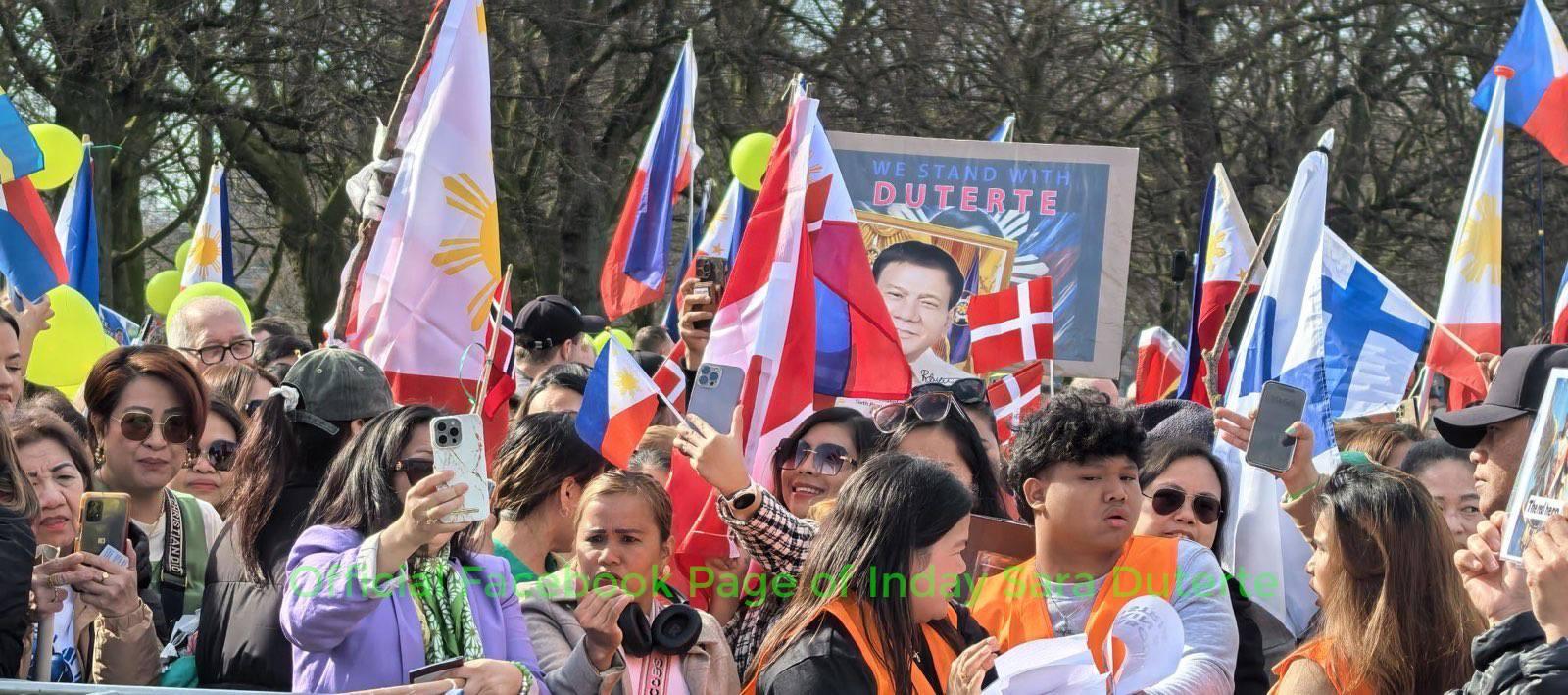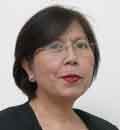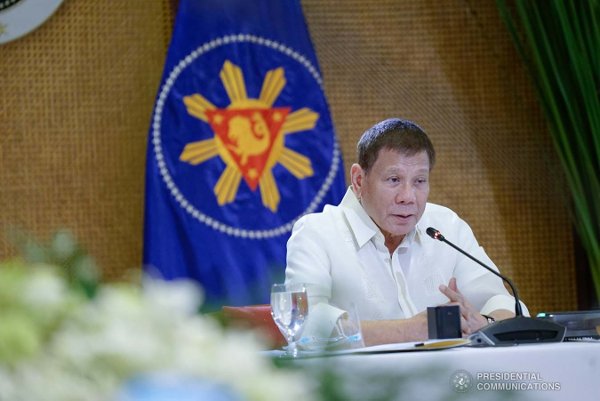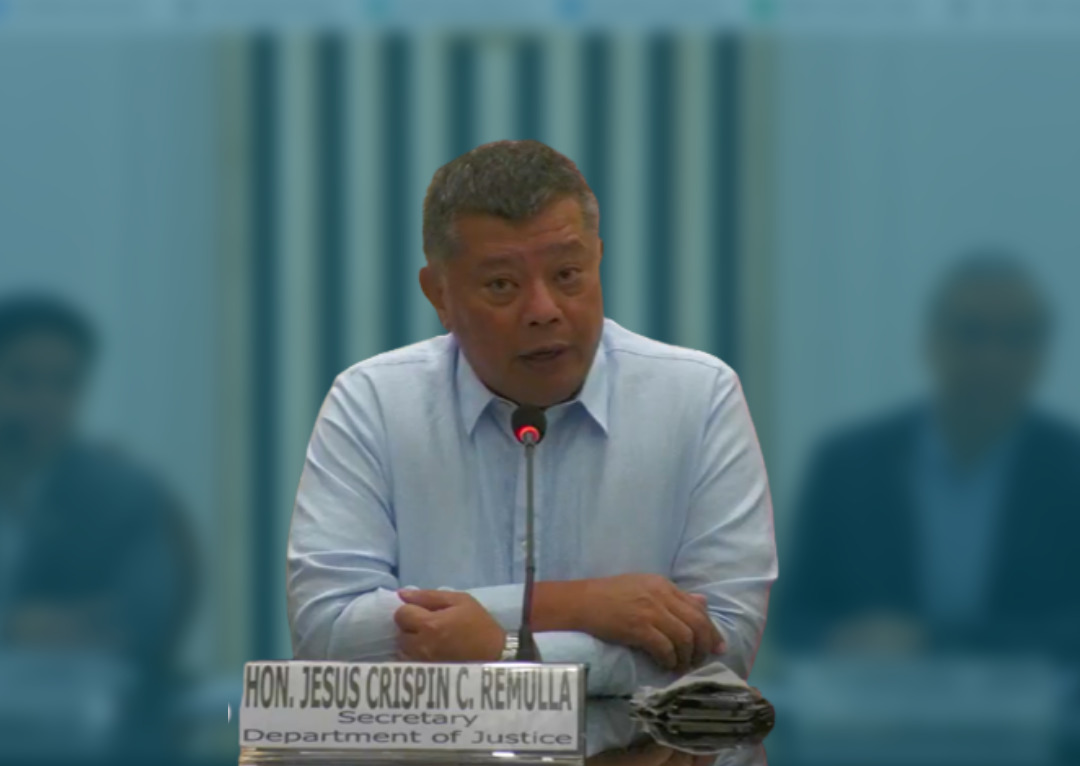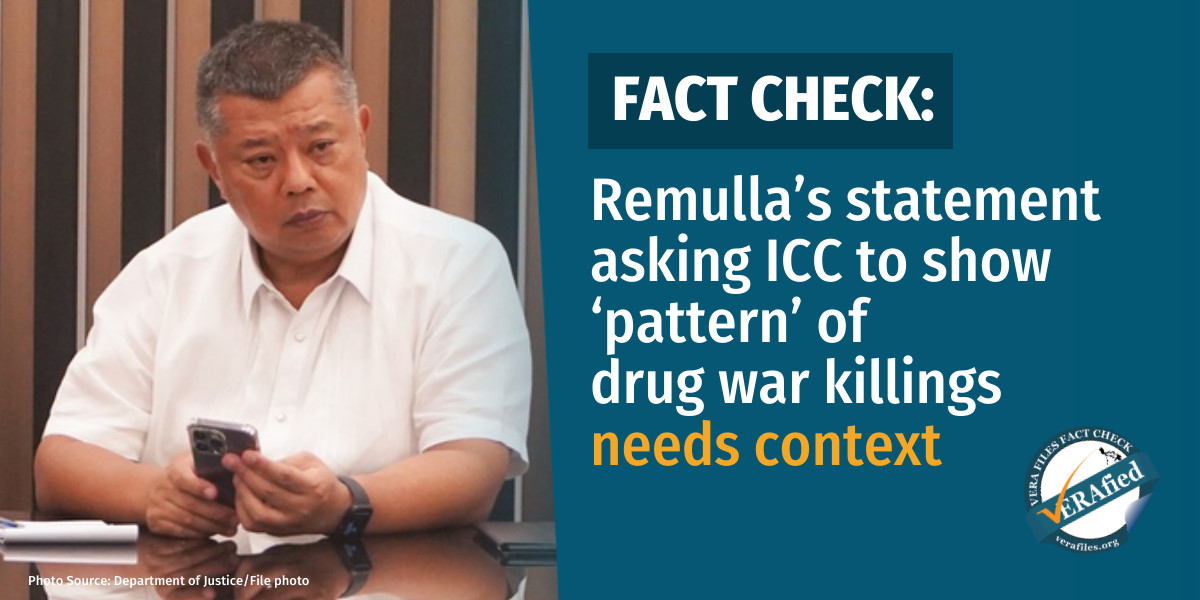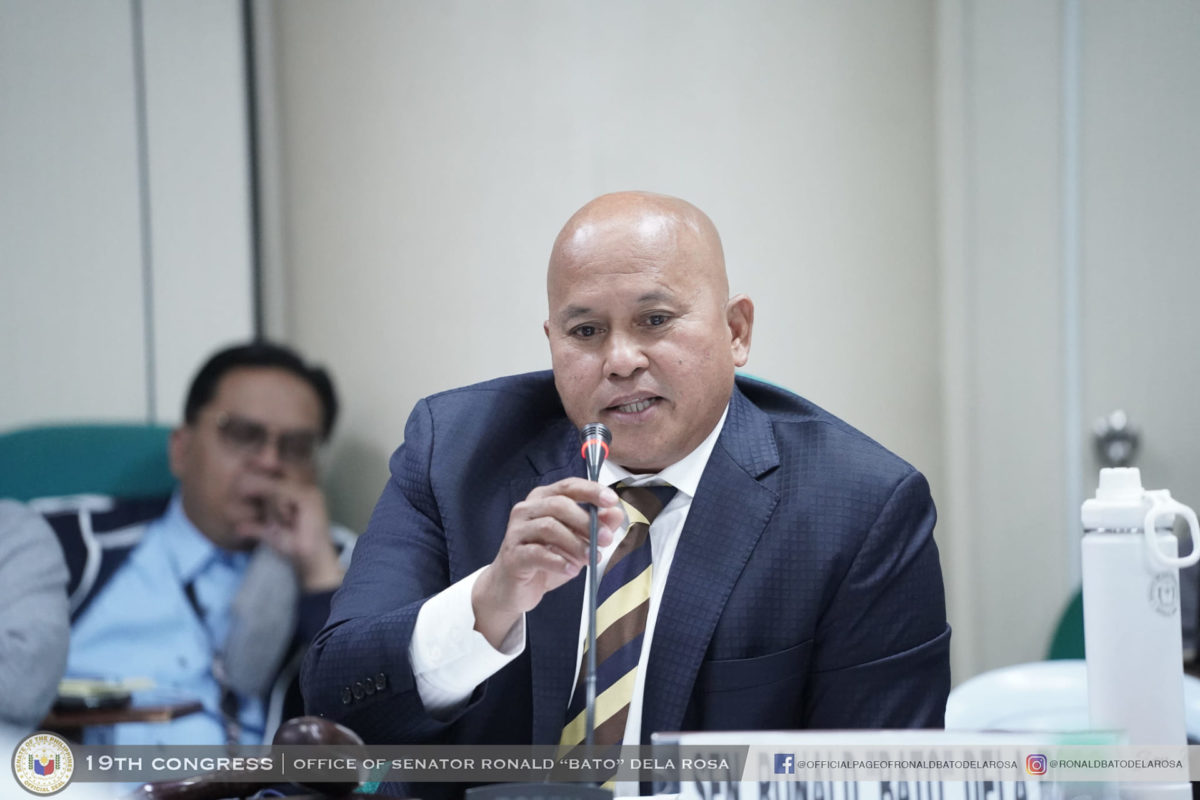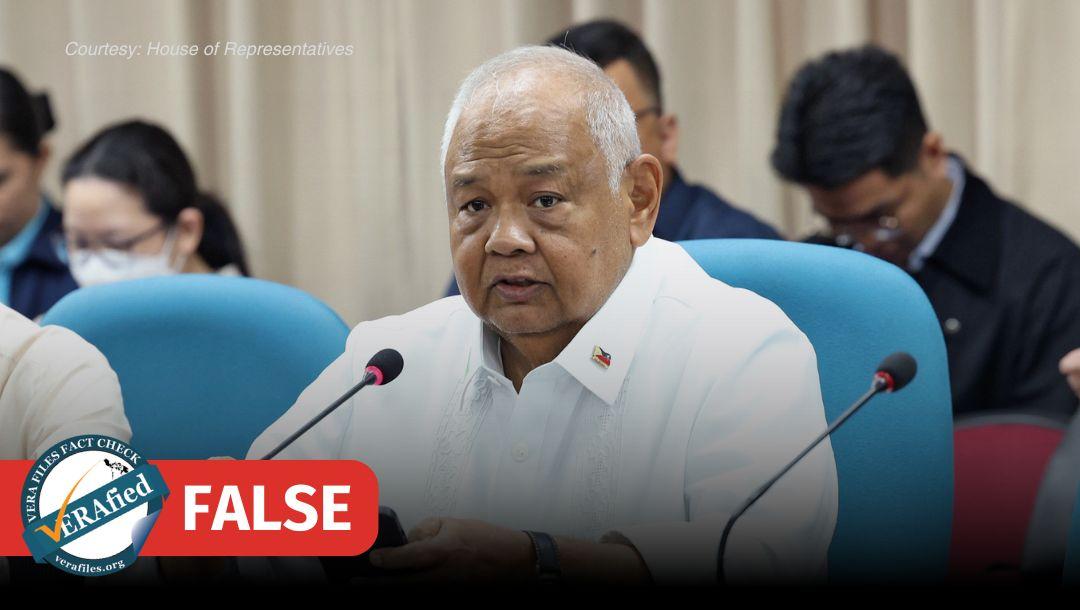The Dutertes still insist that former president Rodrigo Duterte has no case to answer at the International Criminal Court. They’ve been seizing the opportunity before the Sept. 23 confirmation of charges hearing at The Hague, playing to their crowd to portray the 80-year-old Duterte as a hero rather than a criminal responsible for thousands of extrajudicial killings during his bloody campaign against illegal drugs.
“He’s very confident about the legal arguments. He’s very confident… that what they (referring to the Marcos administration and the ICC) did was wrong and there is no case to begin with,” his daughter, Vice President Sara Duterte, told a crowd of supporters gathered on March 23 in Het Malieveld at The Hague city center.
Just three days prior, the vice president said in a virtual press conference: “Hindi na siya maibabalik. Hindi na mababalik si [dating] pangulong Duterte sa Pilipinas. So what we should do as a country is move on from what happened.”
However, the winds of change have blown, which is rampant in the Duterte camp, and their “Bring him home” campaign has spread in countries where there are large numbers of Filipino migrant workers.
Last weekend, the vice president questioned the 30,000 drug war deaths for which her father has been accused of. “Dahil laging paulit-ulit ng media ‘yun, ilang taon. ‘War on drugs, thousands killed.’ ‘War on drugs, 30,000 killed.’ And yet, nandito na tayo ngayon sa ICC and there’s just 181 pieces of evidence,” she told reporters during a gathering of supporters near the Hague Penitentiary Institution for the former president’s 80th birthday.
“So, nasaan na ang 30,000 pieces of evidence? This is not a case for the ICC. These were not even cases in the Philippines. Not a single case,” she added, and even called the victims’ lawyer stupid.
“How can you prove systematic killing of 30,000 victims if you do not have the names of 30,000 victims?… and yet we have 181 pieces of evidence. And we don’t even have 50 victims. This is 43 counts of murder, not even 50. So, where is the [systematic] killing of thousands?”
The younger Duterte is a lawyer, like her father. She has taken her father’s case to the streets, where they enjoy significant support. They seem to have little chance of winning in the ICC, which has consistently asserted its jurisdiction over the EJKs while the Philippines was still a member of the Rome Statute from November 2011 until March 2019, when the former president withdrew the country’s membership following then ICC prosecutor Fatou Bensouda’s launching of a preliminary examination over the deaths.
Disinformation in various forms and shapes have proliferated online since Duterte’s March 11 arrest, many of them were false and misleading, portraying the former president as a victim of injustice.
The vice president described the arrest and his turnover to the ICC in The Hague as “state kidnapping” while former executive secretary Salvador Medialdea called it “extrajudicial rendition.”
“Viral narratives included outright fabrications of local and international support for the former president and condemnation of his arrest. These were often presented through bogus statements in quote cards or articles bearing the logos of international news organizations, and misrepresented videos of unrelated events. Some clips falsely suggested that Duterte supporters were gathering in Manila, Mindanao and the Netherlands, framing the footage as a prelude to another ‘people power’ movement,” wrote UP professor Yvonne Chua in her analysis of fact checks by Tsek.ph, the country’s pioneering fact-checking collaboration comprising of 24 partners from media, academe and civil society.
Duterte supporters also spammed the LinkedIn account of ICC Pre Trial Chamber-I presiding judge Iulia Motoc, calling for the release of the former president, who is being detained at the ICC prison facility in Scheveningen, The Hague.
Medialdea, when he was allowed to make a manifestation during Duterte’s first appearance before the ICC pre-trial chamber on Marh 14, accused the court of striking an “unlikely alliance” with the Marcos by bringing the former president to The Hague for trial.
He even described the ICC as “a troubled legal institution subject to delegitimization and desperate for a prize catch and a legal show” while portraying Duterte as “an elderly man with debilitating medical issues, hard of hearing and poor of sight.”
Presiding Judge Iulia Motoc rebuked him point by point, emphasizing that Duterte’s medical condition was deemed “very important” and that his rights were respected every step of the way.
Joel Butuyan, one of five ICC-accredited Filipino lawyers, said the Duterte camp’s moves could backfire on the former president. “I agree that it’s going to affect the judges, especially on the issue of interim release, because the judges will see that the force of Duterte camp is so powerful that even the ICC could be subjected to bullying, harassment and attempts to manipulate,” he said.
Butuyan advised the vice president to leave to her father’s legal team do the talking on the details of the ICC case instead of making statements that could only boomerang and apply to her.
“The ICC case is not about proving the murder of 30,000 Filipinos but about the decision by her father in ordering police forces to use extrajudicial killing as a solution to the illegal drugs problem,” he pointed out.
The vice president herself told supporters after a visit to her father at the Scheveningen penitentiary that the former president did not want them discussing his case or its developments, particularly regarding the complainants or complaints filed with the ICC. But in the same gathering, she ignored her father’s wish.
While the Dutertes have been organizing and encouraging more mass actions in line with their “Bring him home” campaign, the former president’s legal team has yet to file an “interim release” petition to the ICC pre-trial chamber.
When the ICC issued the arrest warrant on March 7, it said there was “no reasonable expectation” that Duterte would cooperate with a summons to appear at The Hague and thus had to ensure his appearance at the court through a warrant of arrest.
It also observed that although Duterte is no longer president, he “appears to continue to wield considerable power,” and might interfere with the investigations and security of witnesses and victims.
From that part in the arrest warrant, it would seem that Duterte’s lawyers will have to work harder for a plea for “interim release” to be granted. Faced with tough challenges even before the trial begins, the Duterte camp is working to win the former president’s case in the streets rather than through the legal channels, which they have long been trying to besmirch through black propaganda and other forms of disinformation.
The views in this column are those of the author and do not necessarily reflect the views of VERA Files.
This column also appeared in The Manila Times.
